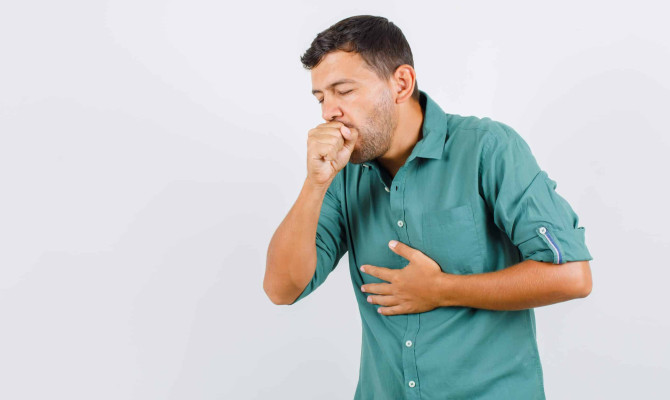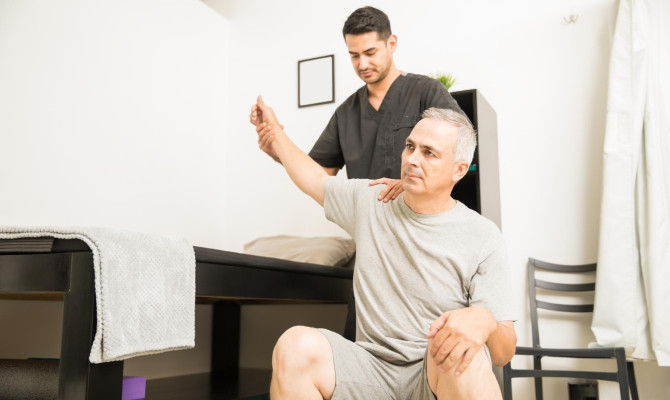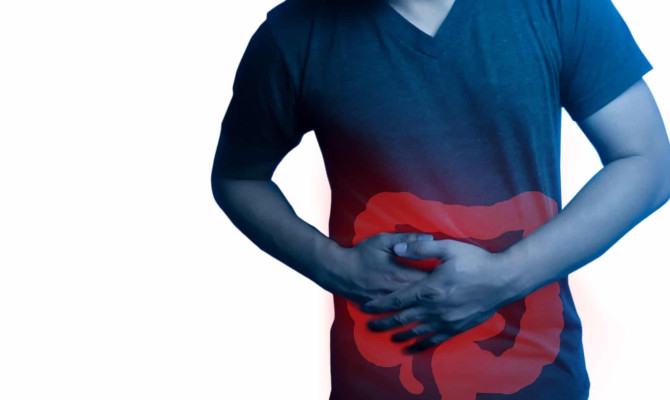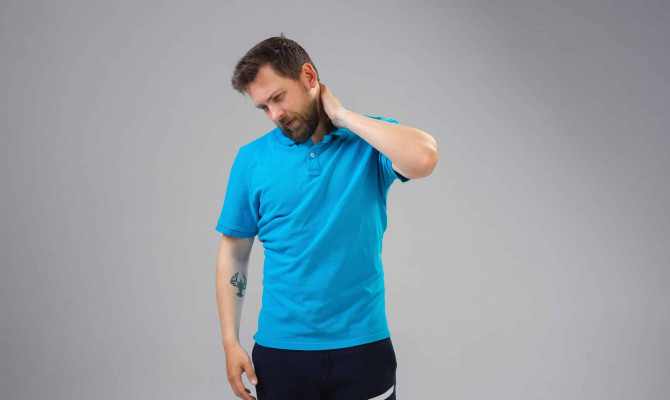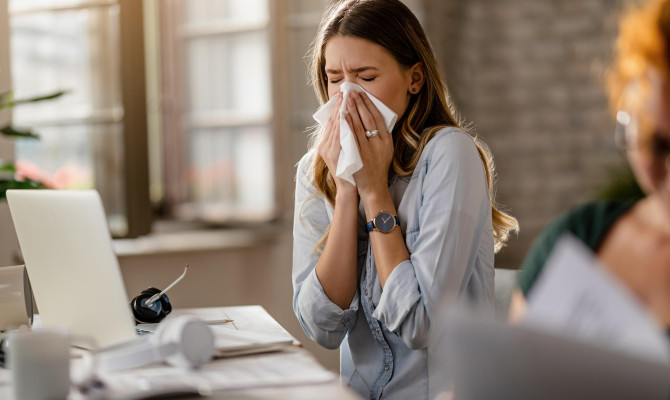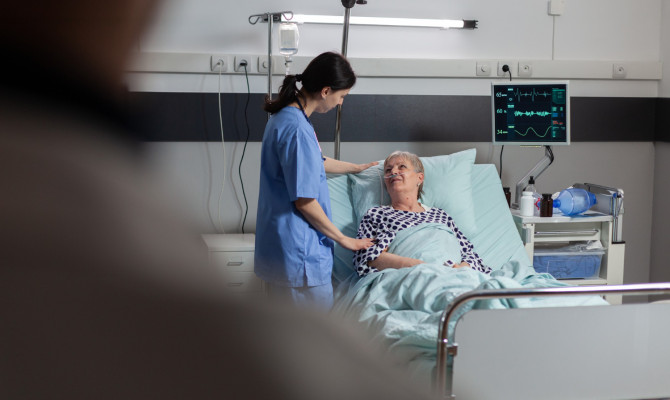Understanding Sleep Apnea: Causes and Treatment

- Sleep Apnea
- 30 Aug 2023
Introduction
What is Sleep Apnea?
A sleep disorder known as sleep apnea is characterized by breathing pauses while you’re asleep. It happens when the airway becomes restricted or totally shuts down, briefly pausing breathing. These disruptions, which frequently happen in the late evening, disrupt the regular cycle. We will learn about the different facets of sleep apnea in this article, including its forms, causes, symptoms, potential health hazards, and available treatments. 1Introduction | Researched based study from National Institutes of Health

Types
Types of Sleep Apnea
There are primarily three types of sleep apnea:
- Obstructive sleep apnea (sometimes called treatment-emergent)
- Central sleep apnea
- Complex sleep apnea syndrome
Obstructive sleep apnea (OSA):
- It is the most prevalent kind
- The upper airway may become completely or partially closed while you’re sleeping if the muscles at the back of the throat relax too much.
- The block might produce breathing pauses or shallow breaths, which can disturb sleep and cause weariness during the day.
- Obesity, big tonsils, large tongue, nasal congestion, and lifestyle (alcohol use, smoking) characteristics are all risk factors. 1Types | Researched based study from National Institutes of Health
Central sleep apnea (CSA):
- It occurs less frequently and occurs when there is improper communication between the brain and the breathing muscles.
- There is no physical barrier, unlike OSA
- During sleep, people may feel no breathing or reduced breathing effort.
- It may be related to a specific medical condition, such as brain stem dysfunction, hard failure, or medication use. 2Types | Researched based study from ScienceDirect
Syndrome of complex sleep apnea:
- The OSA and CSA types are combined in this form.
- An individual may have OSA at first, but if they begin using a CPAP machine or other positive airway pressure devices to treat their OSA, central sleep apnea (CSA) may develop.
It is essential to visit a health care expert, often a sleep specialist, for a thorough evaluation if you feel that you or someone you know has sleep apnea. 2Sleep Apnea Types | Researched based study from ScienceDirect
Symptoms
Sleep apnea symptoms
- Constant loud snoring
- Pauses in breathing
- Daytime sleepiness
- Headache
- Difficulty concentrating
- Irritation
- Frequent urination
- Dry mouth
- Restlessness
- Decreased libido
Different symptoms that vary in severity and appearance from person to person may be displayed. Typical symptoms and signs include the following:
Persistently loud snoring
- A hallmark symptom is loud snoring, frequently accompanied by choking or gasping noises while sleeping.
Pauses in breathing
- A companion or family member may notice irregular breathing while the individual sleeps, followed by a sudden choking as the person begins breathing again.
Excessive sleep during the daytime
- Often feel overly tired during the day, regardless of how much time is spent in bed.
Morning headache
- Especially if it’s a recurring problem, it can be an indication.
Difficulty paying attention
- It may result in diminished cognitive function, such as trouble focusing, memory issues, and decreased awareness.
Irritability
- People with untreated sleep apnea frequently experience irritability, mood swings, and emotional disruption due to disrupted sleep habits.
Frequently urinating at night.
- It may increase the number of nighttime urination awakenings.
Mouth or throat discomfort
- People occasionally have morning dry mouth or throat, frequently brought on by mouth breathing.
Restless sleeping
- As the body works to clear the airway, frequent tossing, turning, and position changes during the night are possible.
Decreased libido
- It may impact hormone levels and cause some people less sexual desire. 6Symptoms | Researched based study from International Journal of Head and Neck Surgery 5Symptoms | Researched based study from ResearchGate
Causes
Causes of Sleep Apnea
There are numerous potential causes, and the precise cause can change depending on the type. The main reasons for each category are as follows:
Causes of obstructive sleep apnea
Anatomical aspects
- Physical characteristics such as a tiny jaw, huge tonsils, or large tongue might cause a restricted airway.
Increased weight
- The likelihood of blockage rises when the soft tissue in the neck grows with obesity.
Nasal congestion
- Breathing through the nose can become challenging due to ailments like allergies or a deviated septum, raising the possibility of obstruction.
Usage of alcohol and sedatives
- These drugs cause the throat’s muscles to loosen up, increasing the likelihood of obstruction.
Sleeping position
- The muscles in your throat can relax as you sleep on your back, which can constrict your airway. 1Causes | Researched based study from National Institutes of Health
Central sleep apnea causes (CSA)
Heart disorders
- The ability of the brain to regulate breathing can be hampered by a stroke, atrial fibrillation, or congestive heart failure.
Specific medicines
- Opioids, certain painkillers, and high-altitude medications can all impact the respiratory control centers in the central nervous system.
Cheyne-Stokes respiration
- This pattern of breathing, which alternates between shallow and deep breaths, can be brought on by neurological disorders or heart failure. 6Causes | Researched based study from International Journal of Head and Neck Surgery 2Causes | Researched based study from ScienceDirect
Causes of complex sleep apnea syndrome
OSA’s initial diagnosis
- It might appear if someone begins positive airway pressure therapy and their central sleep apnea (CSA) responds by getting worse.
It is crucial to understand that lifestyle factors, including smoking, binge drinking, and passive behavior, can influence how symptoms manifest or worsen. Additionally, a person’s predisposition to sleep apnea may be affected by heredity. 3Causes | Researched based study from National Institutes of Health
Diagnosis
How is Sleep Apnea Diagnosed?
Symptom assessments, sleep studies, and medical evaluations are all used to make the diagnosis. Here is how the actual diagnosing procedure goes:
Clinical evaluation
- A pulmonologist or sleep specialist may be the first healthcare expert to take a thorough medical history.
- Your sleeping patterns, daytime symptoms, general health, and other pertinent information will be questioned.
Physical examination
- The doctor may carry out a physical exam while paying attention to anatomical traits that may impact and factors that could contribute, such as obesity, enlarged tonsils, etc.
Polysomnography
The most accurate test for diagnosis is the sleep study (polysomnography). There are two varieties of sleep research.
In-lab
- You will spend the night in a sleep facility where your heart rate, oxygen levels, respiration, brain activity, eye movement, and muscle activity are all tracked.
- This aids in determining the severity and type of condition.
HSAT: Home Sleep Apnea Test
- A streamlined sleep study may occasionally be performed at home.
- It involves wearing a gadget that tracks comparable parameters, although it is less thorough than an in-lab experiment.
- When a visit to a sleep center is neither required nor practical, it is frequently employed.
Additional tests
- Additional testing may be required in some circumstances to determine the underlying causes, mainly when there are symptoms of Central sleep apnea or other health-related problems. 4Diagnosis | Researched based study from National Institutes of Health
Management

Management of Sleep Apnea
The kind and severity of the illness determine the course of treatment. Here are a few typical methods:
Lifestyle changes
- Losing weight, especially in cases of obstructive sleep apnea, can frequently alleviate slip apnea symptoms if obesity is a significant component.
Positional treatment
- Sometimes promoting side sleeping instead of back sleeping can lessen the frequency of apnea events.
Avoiding sedatives and alcohol
- These medications can loosen the neck muscles, increasing the likelihood of airway obstruction.
Quitting smoking
- Smoking can lessen airway swelling and fluid retention.
Medical Management
Positive airway pressure therapy (PAP)
- A frequent and efficient treatment for moderate to severe OSA is positive airway pressure therapy (PAP) or continuous positive airway pressure therapy (CPAP).
- A CPAP machine maintains the airway open as you sleep by continuously delivering air through a mass.
Bi-level positive airway pressure (BiPAP)
- CPAP-like, but with various inhalation and exhalation pressure settings.
- It is occasionally employed in specialized situations, such as central sleep apnea or respiratory problems.
Oral appliances
- Repositioning the lower jaw and tongue as you sleep with dental appliances or other oral devices can help maintain your airway open.
- These are frequently employed for mild to moderate cases and in the case of CPAP intolerance. 4Management| Researched based study from National Institutes of Health 6Management| Researched based study from International Journal of Head and Neck Surgery
Surgery
Surgical solutions might be considered when other therapies are ineffective or if there are structural problems.
- The uvulopalatopharyngoplasty (UPPP): This procedure eliminates extra throat tissue.
- Genioglossus advancement (GA): Repositions a tongue muscle attachment to avoid an airway collapse.
- Maxillo-mandibular advancement (MMA): The lower and upper jaws are moved to widen the airway.
- Inspire therapy: a device that is surgically implanted and stimulates the hypoglossal nerve.
- Central sleep apnea (CSA) treatment: Treatment for the underlying medical condition that is causing it may be necessary. Utilizing specific drugs, altering your lifestyle, or using adaptive servo-ventilation (ASV) devices may be necessary. 4Management| Researched based study from National Institutes of Health 6Management| Researched based study from International Journal of Head and Neck Surgery
Complications
Complications
The recurrent breathing disruptions might cause several significant health issues if left addressed. The following issues could develop:
Hypertension
- Ongoing oxygen deprivation and stress on the cardiovascular system may cause elevated blood pressure.
Heart conditions
- Heart conditions like coronary artery disease, heart failure, and irregular heartbeats can all make things worse.
Stroke
- The disturbance of oxygen levels and blood flow during apnea episodes can raise the risk of stroke.
Daytime fatigue
- Poor sleep can increase the risk of accidents when driving or operating machinery by causing excessive daytime tiredness, impairing focus, and reducing stress.
Diabetes type-2
- It raises the risk of acquiring type-2 diabetes and is linked to insulin resistance.
Metabolic syndrome
- It is a component of the metabolic syndrome, a collection of conditions that increase the risk of heart disease, stroke, and diabetes by elevating blood pressure, blood sugar, body fat, and abnormal cholesterol levels.
Liver issues
- It might make other liver diseases, like nonalcoholic fatty liver disease, worse.
Additional illnesses
- It may cause irritation, depression, anxiety, and other mood problems.
Gaining weight
- Obesity and sleep apnea commonly coexist.
- Weight gain is caused by sleep disturbances that affect hunger regulation.
Worsening of the current situation
- It can undoubtedly worsen pre-existing conditions, including chronic obstructive pulmonary disease (COPD). 7Complications | Researched based study from ResearchGate
Any feedback on this article?
 This Articles content was accurate
This Articles content was accurate Very Informative Article
Very Informative Article I have a question or a comment
I have a question or a comment
 This article contains inaccurate content
This article contains inaccurate content This article was not helpful
This article was not helpful I have a question or a comment
I have a question or a comment
We appreciate your helpful feedback!
Checkout our social pages
References
-
National Institutes of Health
Types | Introduction | Causes
-
ScienceDirect
Sleep apnea Types/ Causes
-
National Institutes of Health
Causes
-
National Institutes of Health
Diagnosis | Management
-
ResearchGate
Symptoms
-
International Journal of Head and Neck Surgery
Symptoms | Causes | Management
-
ResearchGate
Complications













